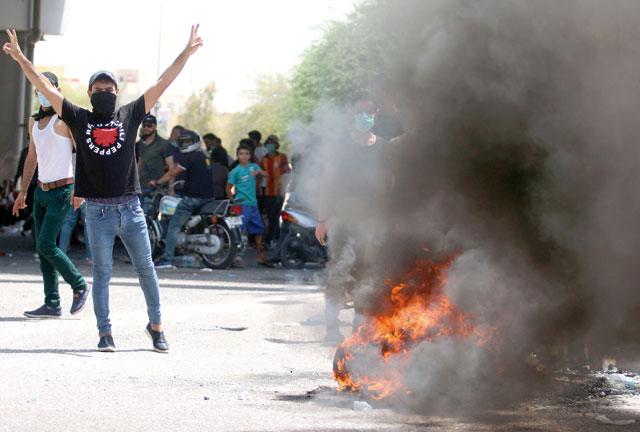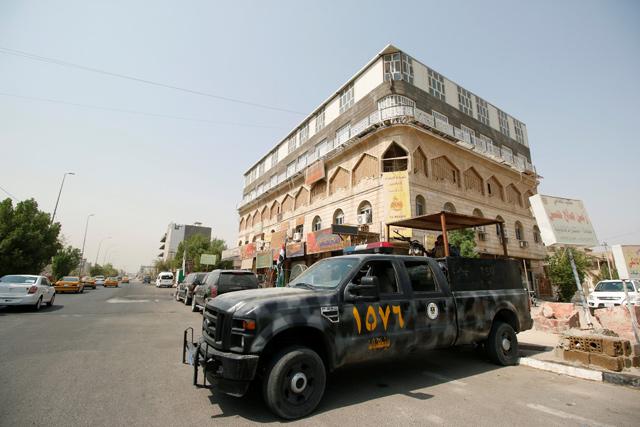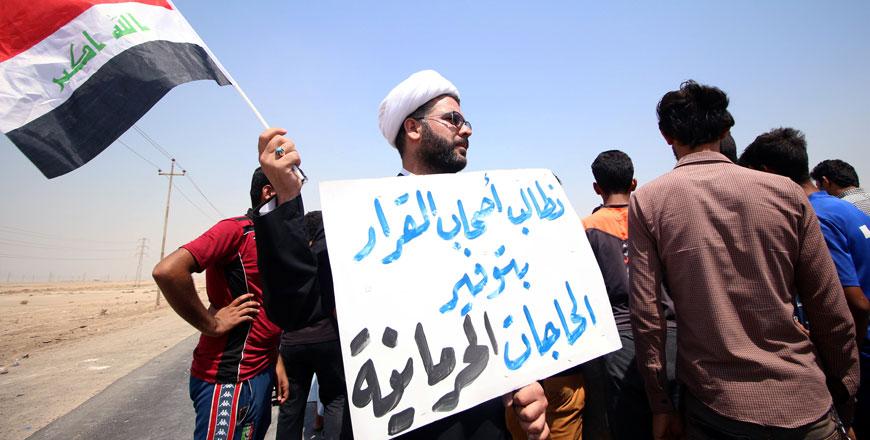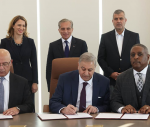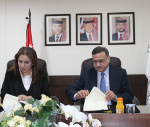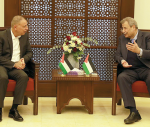You are here
Iraq puts security forces on high alert on sixth day of protests in southern cities
By Reuters - Jul 14,2018 - Last updated at Jul 14,2018
BAGHDAD — Iraq placed its security forces on high alert on Saturday, in response to ongoing protests in the country’s southern provinces over poor government services and corruption.
The nationwide order was issued overnight by Prime Minister Haider Al Abadi, who also serves as the country’s commander in chief of the armed forces, in a directive seen by Reuters.
Reinforcement troops from both the Counter Terrorism Service and the Army’s Ninth Division have already been dispatched to Basra, where demonstrators gathered for the sixth consecutive day, to help protect the province’s oilfields, security sources said.
The directive came in an effort to stem the burgeoning protests, which on Friday spread from oil-city Basra — where residents had blocked access to the nearby commodities port of Umm Qasr — to the cities of Amara, Nasiriya and the Shiite holy city of Najaf.
Hundreds of Iraqis stormed the airport and halted air traffic in Najaf on Friday.
Iraq’s top Shiite cleric, Grand Ayatollah Ali Al Sistani, had expressed solidarity with protesters, saying they faced an “extreme lack of public services” such as electricity in the suffocating summer heat.
Sistani, who has millions of followers, rarely intervenes in politics, but has wide sway over public opinion.
Protests continue
On Saturday, tens of protesters were demonstrating at the Safwan border crossing with Kuwait as well as at the entrance to the Majnoon oilfield, one of the largest in the country which lies 40km north of Basra, local security sources said. However, they had not entered the facility.
Protesters have been gathering at several major oilfields in Basra in recent days.
Oil exports from Basra account for more than 95 per cent of OPEC producer Iraq’s state revenues.
Any potential disruptions to production could severely impact the country’s limping economy. Basra oil officials have said the protests have not impacted crude production.
Iraqi politicians face growing unrest as they try to form a coalition government after a May 12 parliamentary election tainted by allegations of fraud.
Abadi is heading a fragile caretaker government, in place until the new government is formed.
A political bloc led by cleric Moqtada Al Sadr won a majority in the poll on an anti-corruption platform which had appeal across Iraq’s electorate.
Related Articles
BASRA, Iraq — Iraqi police fired in the air to disperse hundreds of protesters who tried to storm a government building in Basra and demonst
BASRA, Iraq — Prime Minister Haider Al Abadi sought to ease tensions in Iraq’s oil-rich south on Monday with a visit to Basra, rocked by dea
BASRA, Iraq — Protests in Iraq continued into their second week on Monday following days of clashes that left six people dead, with demonstr


